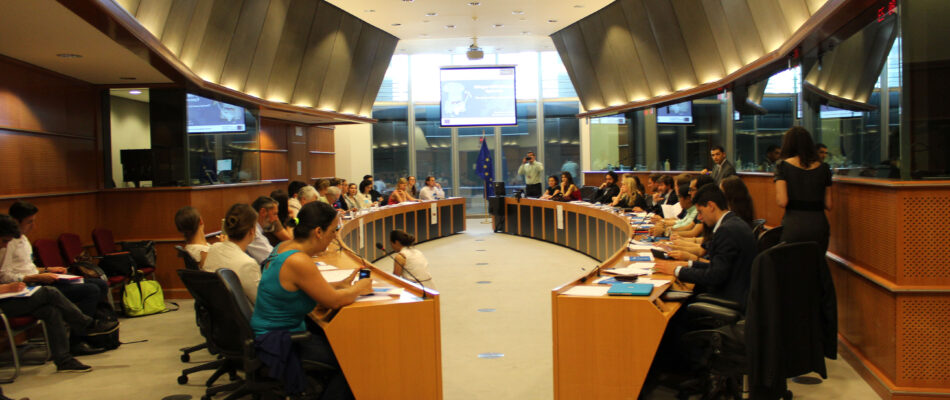
Understanding the Bologna Process with Student Eyes. Why does it matter?
According to European Students’ Union newly released publication Bologna With Student Eyes 2015, after more than 15 years, the goals of the Bologna Declaration remain largely unfulfilled. The major challenge for the Bologna Process today from the student perspective is the uneven implementation of reforms and countries’ poor follow-up on previous commitments. Additionally, unrelated, and at times unpopular national reforms have been pushed using the Bologna-name. Cuts in funding have also stopped or delayed the implementation process.
Basic recognition of degrees and qualifications is not yet a reality
“It is not reasonable that the Bologna Process has been in place since 1999, yet still basic recognition of degrees and qualifications is not yet a reality. There is no doubt that something must be done or in 2020 the Bologna Process will be obsolete at best. Considering how fruitful the Process has been on the whole, despite its current challenges, it would be a shame to lose what has been a successful tool for reforming our education systems. “Said Elisabeth Gehrke, Chairperson of the European Students’ Union.
In line with the Policy Paper on the Bologna Process and the European Higher Education Area adopted in May 2014, the European Students’ Union calls for:
• a real paradigm shift towards a student-centered approach to learning and teaching, characterised by innovative learning and teaching methods
• better definitions of underrepresented groups and a more holistic approach in tackling discrimination
• recognition of degrees to be guaranteed and granted automatically for those countries that have succeeded in the implementation of core reforms
• true academic freedom and active participation in decision-making processes for students and academics
• the establishment of a control mechanism to verify that governments and Institutions are not misusing the name of the Bologna Process to justify policies that are unrelated to the Bologna implementation.
• the involvement of all stakeholders in the implementation and follow-up of the reforms
MEPs supporting the European Students’ Union calls
These postulates were strongly supported by MEPs. Krystyna Lybacka (S&D) underlined that the Bologna objectives provide an essential means for European higher education to face current world challenges. However, there is still much to be accomplished in fulfilling the goals of the Bologna Process.
Therese Comodini Cachia (EPP) highlighted the need to recognise student-centred learning as a main pillar of the European degree structures. She emphasised that students and lecturers are direct partners and stakeholders in higher education and their active participation in programme design and delivery as well as in decision making processes are of fundamental importance and should be further promoted.
Ernest Maragall (The Greens / EFA) pointed out that for the Bologna Process to achieve its goals, it is necessary to focus on correctly implementing commonly agreed reforms, and to support those countries encountering difficulties in their implementation.
ENDS–
Background:
Bologna with Student Eyes 2015 is a reality-check of what has been agreed upon by national governments within the Bologna Process and what the actual situation is for students. The data for this edition was collected by surveying ESU’s national unions of students in the following areas: student participation in governance, social dimension, quality assurance, recognition, mobility and internationalization, structural reforms and financing of higher education. The questionnaire also included general questions about the Bologna Process and its future. In total, over 38 national unions of students responded the questionnaire, from Norway to Malta and Ireland to Armenia.
For more information, please consult Bologna with Student Eyes 2015 website:
http://bwse2015.esu-online.org/Introduction
You can download the full publication here:
BWSE-2015-online
Note to Editors:
The European Students’ Union (ESU) is the umbrella organisation of 45 National Unions of Students (NUS) from 38 countries. The NUSes are open to all students in their respective country regardless of political persuasion, religion, ethnic or cultural origin, sexual orientation or social standing. Our members are also student-run, autonomous, representative and operate according to democratic principles. The aim of ESU is to represent and promote the educational, social, economic and cultural interests of students at the European level towards all relevant bodies and in particular the European Union, Bologna Follow Up Group, Council of Europe and UNESCO. Through its members, ESU represents around 15 million students in Europe. ESU receives an administrative grant and runs projects funded by the European Commission.
For more information, please contact:
Alexandra Antonescu, Communications Officer, European Students’ Union, Alexandra.antonescu@esu-online.org
Fernando M Galán Palomares, Chairperson, European Students’ Union, fernando.galan@esu-online.org, +32 2 893 25 46
